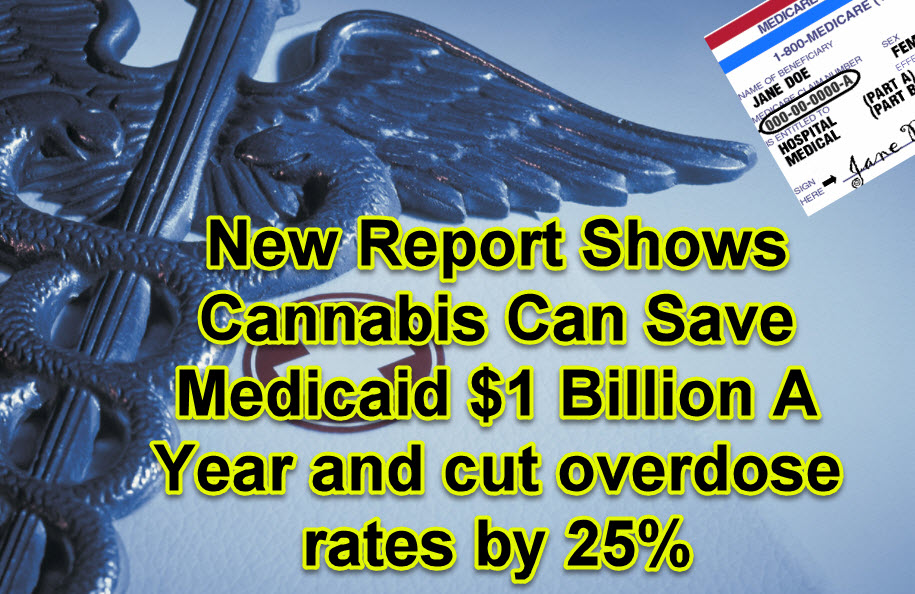Cannabis Is The Answer To The American Health Care Act
American Health Care and Cannabis - How To Save the System from CannabisNet on Vimeo.
Last Thursday, the House approved the American Health Care Act, which unfortunately for the American citizens repeals Obamacare, also known as the Affordable Care Act.
The bill is now in the hands of the Senate where it’s expected to face resistance from Democrats as well as moderate conservatives. This is another brilliant move from President Trump, and thanks to all of his smart decisions the new health care bill is going to weaken protection for citizens who have pre-existing conditions and make healthcare much more expensive than it already is.
The new bill allows states to permit health insurance companies the power to refuse to cover patients, and even charge them more if they have a pre-existing condition. But under Obamacare, this is prohibited.
Each insurance company has its own rules stating which conditions they can decline or refuse to cover. In fact, pregnancy is one of the pre-existing conditions, and it’s going to cost 425% more for pregnant women to receive proper health care under the American Health Care act, as compared to Obamacare.

Fortunately for cannabis users, many of these conditions can be managed and treated with the plant.
- Acne
- Acromegaly
- AIDS or ARC
- Alzheimer's Disease
- Amyotrophic Lateral Sclerosis
- Anemia (Aplastic, Cooley's, Hemolytic, Mediterranean or Sickle Cell)
- Anxiety
- Aortic or Mitral Valve Stenosis
- Arteriosclerosis
- Arteritis
- Asbestosis
- Asthma
- Bipolar disease
- Cancer
- Cardiomyopathy
- Cerebral Palsy (infantile)
- Chronic Obstructive Pulmonary Disease
- Cirrhosis of the Liver
- Coagulation Defects
- Congestive Heart Failure
- Cystic Fibrosis
- Demyelinating Disease
- Depression
- Dermatomyositis
- Diabetes
- Dialysis
- Esophageal Varicosities
- Friedreich's Ataxia
- Hepatitis (Type B, C or Chronic)
- Menstrual irregularities
- Multiple Sclerosis
- Muscular Dystrophy
- Myasthenia Gravis
- Obesity
- Organ transplants
- Paraplegia
- Parkinson's Disease
- Polycythemia Vera
- Pregnancy
- Psoriatic Arthritis
- Pulmonary Fibrosis
- Renal Failure
- Sarcoidosis
- Scleroderma
- Sex reassignment
- Sjogren's Syndrome
- Sleep apnea
- Transsexualism
- Tuberculosis
Impact of AHCA On The American People
One of the biggest criticisms of the AHCA is that it would be the end of Medicaid expansion come 2020. Medicaid’s budget would also be reduced by $880 million. While Obamacare was successful in expanding the Medicaid program so that millions of more low-income citizens could enjoy coverage, the AHCA is now changing all this. Before Obamacare, only pregnant women, the blind, and disabled were entitled to more insurance coverage.
Through Obamacare, anyone living below the 138% poverty line in the 31 participating states were eligible for the program. With Trump’s new bill, applications for Medicaid will end by January 1, 2020. Once we get there, enrollment for additional Medicaid insurance coverage will then freeze and states won’t be able to allow new applications. It’s expected that enrollment will gradually decrease since the incomes of enrollees will also change and they get off the program entirely.
Aside from Medicaid expansion, there are also important changes to the act. Under the AHCA, Medicaid will evolve into a “per capita cap” system. This means that states will receive money from the federal government to cover each enrollee. States also have the option of working with a block grant, which is a lump sum untethered from the quantity of citizens who are involved.
With the current Medicaid funding, the federal government is committed to paying all the Medicaid bills of enrollees no matter how much the expenses are. This per capita cap is equivalent to an $880 billion cut for Medicaid. It’s also the first time that states will be given the option of adding a work requirement for Medicaid, although conservatives have been opposing this.
Those Who Have Higher Premiums
If the bill passes in Senate, states can waive many rules of the act for both individuals and small-group insurance plans. The state needs to ensure that one of these requirements are met in order to obtain approval: the waiver should lower rates, increase the number of insured people, or prove that it would advance the public interest of the state.

If you live in one of the states that receives a waiver, you will have higher premiums if you:
- Have a chronic disease
- Are older (premiums for 64-year olds are estimated to increase up to $10,600 per year)
- Get pregnant
- Lose coverage for at least 63 days and reapply
- Your company only provides coverage if the ACA forces them to
- Are one of the 22 million people who were eligible for Medicaid expansion or received subsidies
- Used mental health services, including drug rehabilitation
These rules are truly messed up to begin with, but if you have access to legal cannabis, this can help improve the quality of you and your family’s life despite the changes in health care.
OTHER STORIES YOU MAY ENJOY...
CANNABIS AND MEDICAID, CLICK HERE.
OR...
MY KID ATE MY WEED, CLICK HERE.








